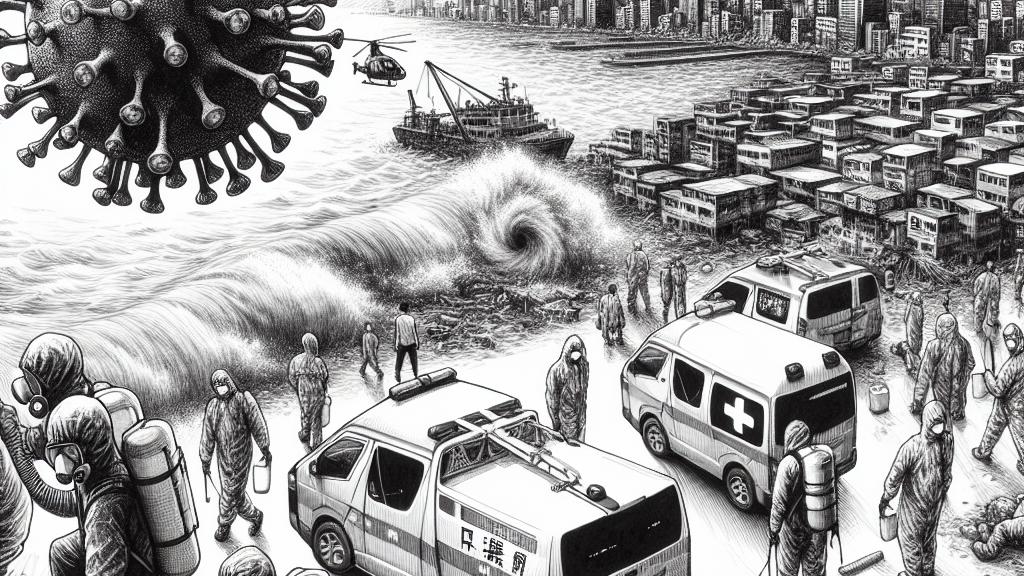Immunity Theft: The Silent Culprit Behind Taiwan's Melioidosis Surge!
Overview
- Notable surge in melioidosis cases in Taiwan linked to the aftereffects of Typhoon Gaemi.
- Experts indicate 'immunity theft' from prior COVID-19 infections as a possible trigger.
- Urgent public health strategies recommended to mitigate ongoing risks and educate communities.

Melioidosis Outbreak in Taiwan
A serious outbreak of melioidosis has emerged in Taiwan, primarily following the destructive Typhoon Gaemi that struck in late July 2024. With 37 reported cases so far this year, the situation marks the highest number recorded since 2006. The acute increase in cases, especially—30 of which were reported in the aftermath of the typhoon, notably in cities such as Kaohsiung and Tainan—has prompted health officials to launch investigations into the environmental conditions contributing to the outbreak. This alarming trend underscores the pressing need for focused public health measures to prevent further escalation.
Understanding Immunity Theft and Its Impact
'Immunity theft' is a term coined by health professionals to describe a condition where individuals experience weakened immune responses following COVID-19 infections. This phenomenon may explain the heightened susceptibility to melioidosis among those affected by the typhoon. Dr. Huang Li-min, a noted infectious disease specialist, explains that environmental factors worsened by the storm, including heavy rainfall and soil disturbance, led to increased exposure to Burkholderia pseudomallei, the bacterium responsible for melioidosis. As a result, individuals with compromised immune systems are at a greater risk of contracting the disease, raising grave public health concerns.
Public Health Implications and Recommendations
The outbreak of melioidosis in Taiwan emphasizes vital public health implications, requiring immediate action. Health authorities are advocating for comprehensive community awareness programs centered around preventive measures, including vaccination campaigns and proper hygiene practices. As the outbreak unfolds, continued education on the importance of masks and protective health measures is paramount. Experts urge the public to remain vigilant, as the underlying impacts of COVID-19 on immune responses could lead to further health crises if not addressed effectively. The integration of health advisories into daily routines and long-term strategies will play a crucial role in safeguarding public health.
Looking to the Future: Building Community Resilience
To confront future health challenges, fostering resilience within the community is essential. The melioidosis outbreak linked to Typhoon Gaemi showcases the necessity of being proactively prepared for potential health threats, especially in areas prone to environmental disasters. Alongside immediate health measures, educational initiatives should emphasize hygiene and resilience strategies for community safety. By promoting a culture of preparedness and education, Taiwan can enhance its capability to respond effectively to health emergencies, thereby ensuring the safety and well-being of its population in the face of multifaceted crises stemming from natural disasters and infectious diseases.

Loading...